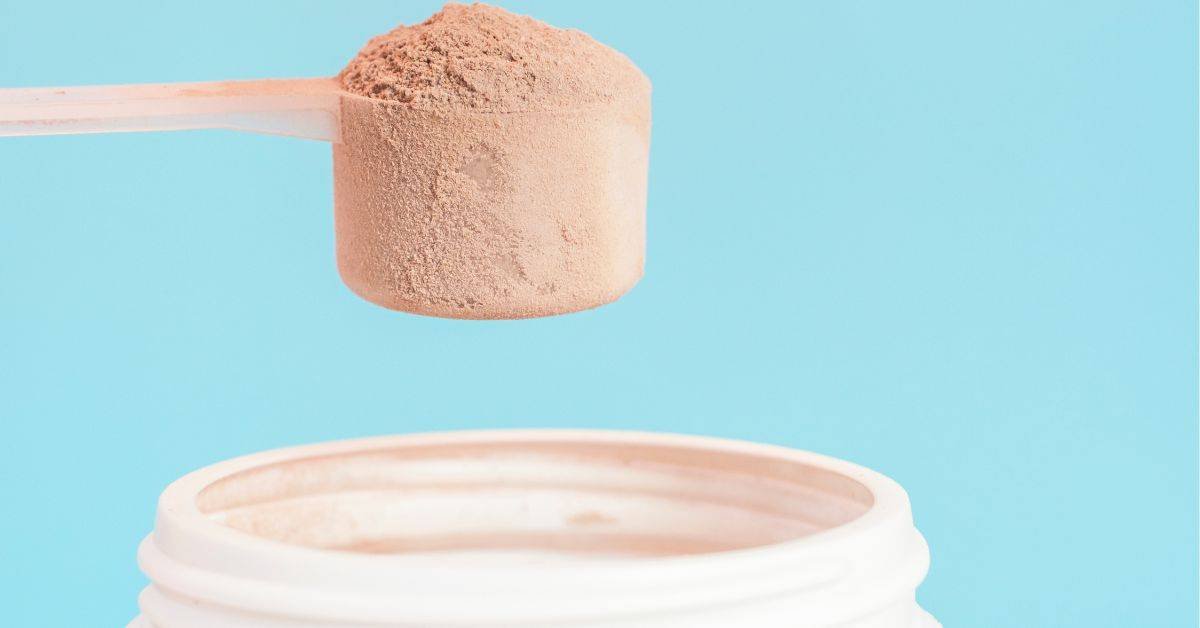
Table of Contents
Everything edible eventually goes bad if not consumed within a specified period and protein powders are no exceptions. Protein powders have a long shelf life but how soon they go bad not only depends on the date on the label but the storage conditions too.
Depending on storage conditions, protein powders may go bad sooner or later than you expect. Storing them in freezers or refrigerators is not advised. Generally, extreme temperatures are bad for your powders. Storage conditions to avoid include:
- Hot or warm conditions,
- Very cold conditions like refrigeration,
- Damp conditions,
- High humid conditions, and
- Wet conditions.
Though you can freeze your protein powder for ages as a way of preservation, You don’t need to freeze one that is in use. The regular freezing and thawing can result in condensation and clumping thereby making it go bad earlier than expected.
A study was conducted on two batches of whey protein concentrates with 34.9g and 76.8g of whey protein per 100g respectively, as published in the National Library of Medicine (NLM).1 It was discovered when stored in sealed bags at 35 degrees Celsius, these protein powders have an average shelf life of 9 months but as much as 18 months at lower temperatures.
Previously we have talked about your protein need by age, the daily intake for proteins, and how much protein your body can absorb, on this topic we will find out if protein powders go bad and how to detect a bad one.
Does protein powder go out of date?
Protein powders go out of date which often can be as long as 2 years from the date of manufacture. Their average shelf life can be up to 18 months. This long shelf life is usually due to preservatives or additives like maltodextrin or lecithin to extend their shelf life but they often have side effects as published in the Emirates Journal of Food and Agriculture.2
For instance, preservatives like sodium benzoate are known to have side effects including attention-deficit/hyperactivity disorder (ADHD) in kids.
Their expiration dates are written on their nutrition labels, however, these are just estimates and should only be used as guides. This is because they can expire before the date due to bad storage conditions as described in the section above.
A protein powder may remain edible beyond the expiration date if stored properly but the quality may be compromised. Such powders may not work as intended even when there are no visible signs of spoilage. For that reason getting a fresh tube of protein powder is advised.
How long can you use protein powder after the expiration date?
Though protein powders may go bad before expiration dates if stored badly, a well-stored powder can remain edible for several weeks or months after the expiration date. This is because the protein and carbs in the powders don’t easily go bad.
However, most protein powders contain some fats. These fats are what readily go bad or turn rancid thereby causing your protein powder to spoil, giving off a bad smell and taste.
Protein powders that have gone past their expiration dates have gone past their prime. Constantly watching out for when they will go bad before each use keeps you safe from consuming bad powders.
Kindly keep in touch by signing up for our newsletter:
How long is protein powder good for once opened?
From research mentioned earlier in this article, protein powder has been shown to last for as much as 18 months. However, these were powders kept in air-sealed containers and stored under good conditions of humidity, temperature, and the rest of it.
Opened protein powder tubes in regular use are constantly exposed to humid atmospheric air with dust and bacteria. These agents ensure the powder doesn’t last as long as observed in experiments. So, rather than last up to 18 months, opened protein powder tubes may only last a year or up to 14 months on average.
How to know if protein powder has expired.
Since the expiration dates on your protein powder aren’t a sure way of knowing when you must stop consuming the powder, being on the lookout for spoilage is your best bet. This is especially true for protein powders that have been on the shelf long enough to raise safety concerns.
There are basically three signs that tell you when you must stop using the powder. These are smell, color, and taste. An expired and bad powder may have a rancid smell from the spoilage of its fat content. Secondly, with bacterial or mold growth there may be color changes. With these changes going on, you don’t expect it to taste as nice as it once was.
To check if your powder has gone bad, you don’t have to prepare a full serving. Just a sip from a little scoop of the powder mixed with water in a cup should be enough to check for deterioration. In a nutshell, to know if your protein powder has gone bad check for:
- “Best before” date: Though your protein powder may remain edible beyond this date, it may have started declining in quality.
- Clumping: This indicates significant deterioration in the ingredients. Clumping makes it due for the trash bin.
- Unusual smell: A rancid or foul smell is another indication of powder that can make you sick if consumed.
- Unusual colors: Off colors are usually caused by microbial activities. If your powder develops unusual colors it didn’t come with, then discard it.
- Bad taste: Protein powder that loses the taste it had when you bought it and begins to taste like cardboard is certainly bad.
What to do with expired protein powder.
A protein powder whose label indicates it has only been a couple of days beyond its expiration date may remain edible for a while beyond that date. You may want to finish the remaining powder you haven’t eaten before it went past the “best before” date, provided it hasn’t started showing physical signs of going bad otherwise you should discard it.
If you are a gardener, you should consider applying your expired protein powder in your garden as manure. Discarding it this way reduces your loss since your plants benefit.
Is it bad to drink an expired protein shake?

Protein shakes are best drank before their expiration. Once expired, they may not only make you sick but may also be ineffective for building muscles or the purpose for which you take them. So what’s the use of drinking them if they can’t work for you?
Leftover protein shakes or the ones you make by yourself are best drank within 24 hours for the best results and a pleasant taste. They may last up to 72 hours if refrigerated but may not taste as good.
When it comes to protein powders, It will depend on the angle from which expiration is viewed. If it’s based on the date of expiration as written on the label, protein powders usually remain edible for a couple of weeks or months beyond their expiration dates.
So, it may not be bad to take protein powder that has gone past that date as long as there are no physical signs, as listed in an earlier section, indicating it has spoiled and is no longer edible.
If by expiration you mean the powder has begun to smell or taste badly, then it’s absolutely unhealthy to consume the expired product if you don’t want to get sick. However, expired protein shakes or powders won’t make you as ill as consuming expired meat or dairy products.
Hope this article was helpful and answers your questions. If so, please share. You may also want to find out what happens if you intake too much protein. See you on the next topic.
References.
- Tunick MH, Thomas-Gahring A, Van Hekken DL, Iandola SK, Singh M, Qi PX, Ukuku DO, Mukhopadhyay S, Onwulata CI, Tomasula PM. Physical and chemical changes in whey protein concentrate stored at elevated temperature and humidity. J Dairy Sci. 2016 Mar;99(3):2372-2383. doi: 10.3168/jds.2015-10256. Epub 2016 Jan 6. PMID: 26778305. ↩︎
- Silva, M. M., and F. Lidon. “FOOD PRESERVATIVES – AN OVERVIEW ON APPLICATIONS AND SIDE EFFECTS”. Emirates Journal of Food and Agriculture, vol. 28, no. 6, Jan. 2016, pp. 366-73, doi:10.9755/ejfa.2016-04-351. ↩︎





